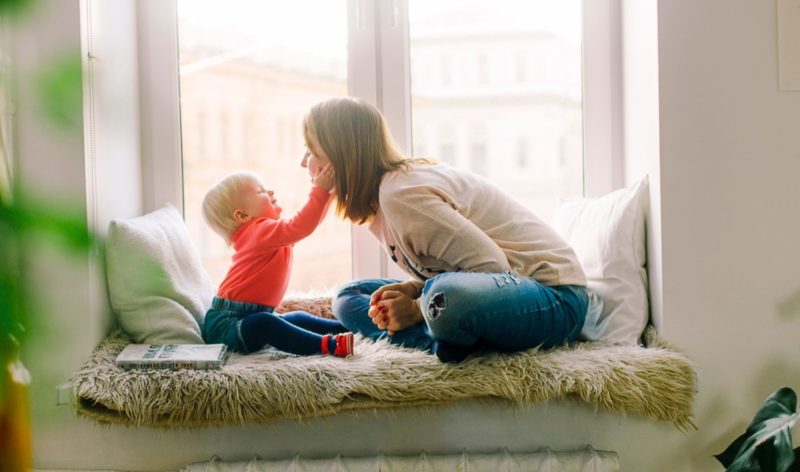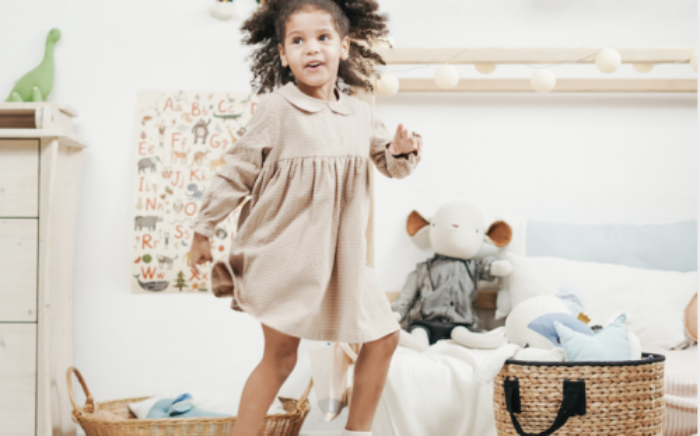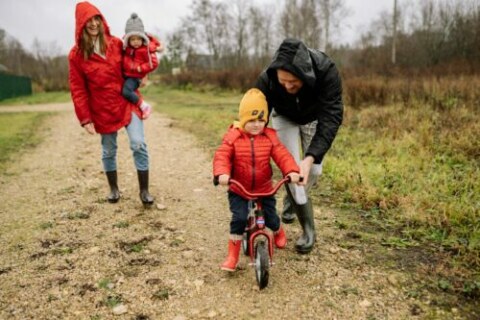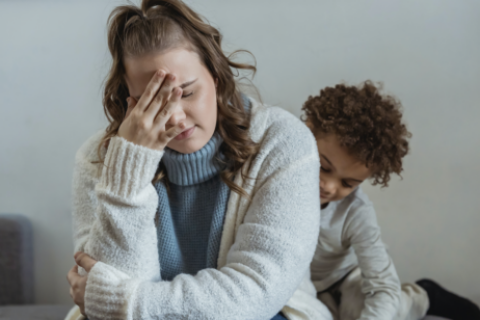The arrival of COVID-19 in America and the subsequent efforts to slow the spread via social distancing has understandably contributed to enhanced anxiety in individuals across the nation and around the world. And while everyone responds to this level of stress differently, children and teens are among those who may be especially sensitive to the stress of this crisis. Some children and adolescents are experiencing heightened anxiety specifically around home quarantine, frequently questioning when they should wash their hands, how often surfaces should be cleaned, or whether family members within the home can infect one another. It is important to remember that children and teens react to the world’s stressors partly based on the behavior they observe in the adults around them. As such, parents, caregivers, and other trusted adults play a key role in helping children feel safe, secure, and informed.Below are some tips and resources for parents and caregivers to help support your anxious child during this especially challenging time.
Parent Self-Care
Have you ever noticed how flight attendants instruct airline passengers to secure their own mask before assisting others in the case of an emergency? This is intentional because if capable adults pass out from a lack of oxygen, they couldn’t be available to help those in need, resulting in increased risk for all. This rule is 100% applicable to the current health crisis, which is why parent self-care is listed first above all other tips. As best you can, caregivers are encouraged to maintain a sense of calm to help children feel at ease. While self-care might seem like the last thing on your to-do list right now, prioritize it. Whether your self-care includes periodic moments alone to focus on your breathing, connecting with your support network via video chat, or an exercise routine – make the time for it!
Keep in mind that while you are the expert in your child, your child is the expert in you! They pick up on your stress and anxiety pretty easily by reading your nonverbal cues (i.e., tone of voice, facial expressions, body language), listening to your conversations, and observing your actions. So be mindful of your emotions and how you are presenting them to your child. In some situations, it can be helpful to share your feelings with your children; we just want to do so in a way that is in control and leaves children feeling reassured. Situations like this provide opportunities to model and practice coping skills that will serve to help your child throughout their lifetime: “I’m feeling a bit nervous. Sometimes when I feel this way, I find it helpful to take slow, deep breaths to help me calm down. [Take 3 breaths] That’s better. The breathing helped my body to calm down. Now I can help you with your schoolwork.”
COVID-19 Resources
A large part of helping young ones feel secure in this stressful time is keeping communication open to answer questions and share facts about coronavirus in a way that they will understand. Sometimes just having a better understanding of a feared situation can help to ease anxiety.
Below are some excellent resources from reliable organizations to help adults stay informed to answer any of your child’s questions.
- CDC’s fact sheet about the coronavirus disease: https://www.cdc.gov/coronavirus/2019-ncov/daily-life-coping/share-facts.html
- CDC’s tips on how to protect yourself from COVID-19: https://www.cdc.gov/coronavirus/2019-ncov/prevent-getting-sick/prevention.html
- WHO’s advice for the public: https://www.who.int/emergencies/diseases/novel-coronavirus-2019/advice-for-public
For those who are looking for child-oriented educational resources about coronavirus, check out those listed below.
- NPR’s child’s comic exploring coronavirus: https://www.npr.org/sections/goatsandsoda/2020/02/28/809580453/just-for-kids-a-comic-exploring-the-new-coronavirus
- Digital learning website BrainPop’s guided discovery video on coronavirus: https://www.youtube.com/watch?v=xTk_XoNQx5s&feature=emb_title
- COVIBOOK for children under the age of 7: https://www.mindheart.co/descargables?fbclid=IwAR2aixKCgccXM3OEWFcbLYTjc5DPG4816KMyB8jmdBZNgJNVePZLYseQ55Q
Supporting Your Child in COVID-Related Discussions
Discussing COVID-19 related concerns can be overwhelming for adults, never mind young individuals. This challenging time is an exposure for all of us whereby we have no choice but to sit with our discomfort given the many unknowns associated with this health crisis. When having conversations about coronavirus, quarantine, or any stressor with your child or teen, it’s important that 1) their feelings be validated, 2) they feel encouraged and reassured that they can make it through this, and 3) the family is doing what they can to help them.
One way to communicate all of these points is by using a 4-part mantra for support, adapted from Dr. Eli Lebowitz’ research at Yale University. This mantra can be applied to any anxious situation or stressor. And it goes like this:
- “We love you very much.
- We know it’s really hard for you to [insert anxious situation]
- We’re 100% confident you can [subset of #2 above]
- And we’re going to help you by [insert helpful strategies]”
For example: “We love you very much. We know it can be scary and really hard to talk and think about coronavirus. But we are confident you will be ok and will get through this. And we are going to help you by staying home as much as possible, remembering to wash our hands, and cleaning countertops daily.”
While it is important to stay informed and make time to talk about COVID-related concerns with kiddos, it is equally important to limit how much time is spent doing this. If we were to constantly watch news reports on the coronavirus or talk about the cleanliness of the home, people’s health, etc., children (and adults) will have a difficult time escaping from these stressors and may get stuck in a vicious cycle of anxiety. As such, it may be helpful to have a few fun and distracting activities up your sleeve to help take yours and your family’s mind off these stressors.
***If you feel you need additional guidance in this area, you may benefit from consultation with a clinician during this time. We are offering various events online for parents with practical strategies to strengthen relationships in the home, manage child misbehavior, and target your child’s anxiety during social distancing. For those of you considering treatment at this time, we are still here for you, providing all services through our secure, HIPAA-compliant telehealth platform.
References:
Centers for Disease Control and Prevention (2020, April 1). Coronavirus Disease 2019 (COVID-19): Stress & Coping. https://www.cdc.gov/coronavirus/2019-ncov/daily-life-coping/managing-stress-anxiety.html
Centers for Disease Control and Prevention (2020, April 1). Coronavirus Disease 2019 (COVID-19): Talking to Children. https://www.cdc.gov/coronavirus/2019-ncov/daily-life-coping/talking-with-children.html
Lebowitz, E. R. & Omer, H. (2013). Treating childhood and adolescent anxiety: A guide for caregivers. Hoboken, NJ: Wiley.









